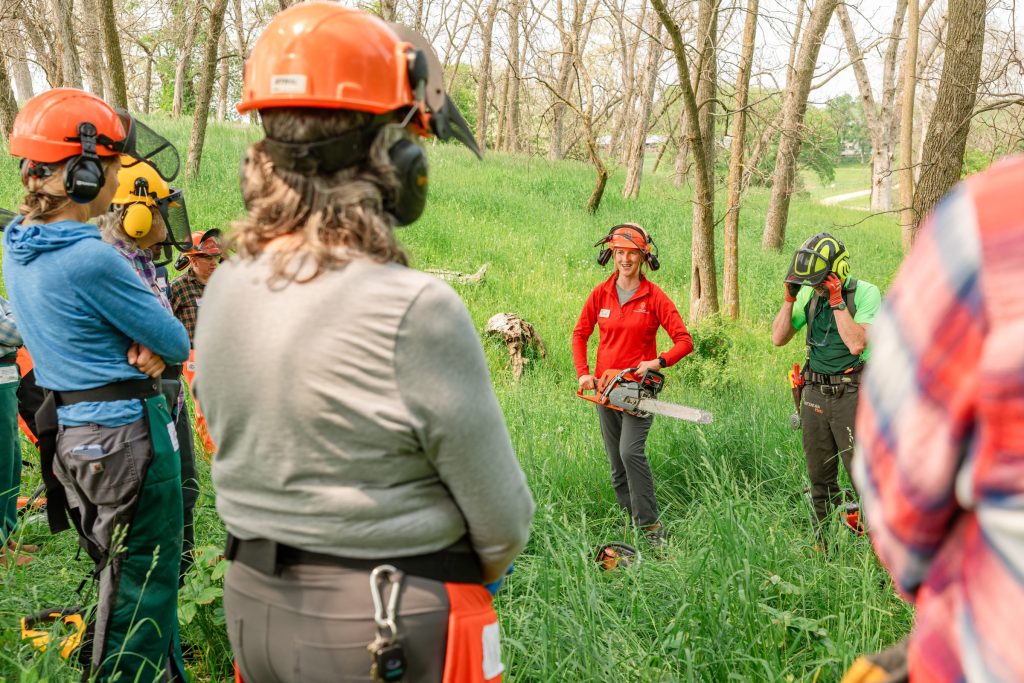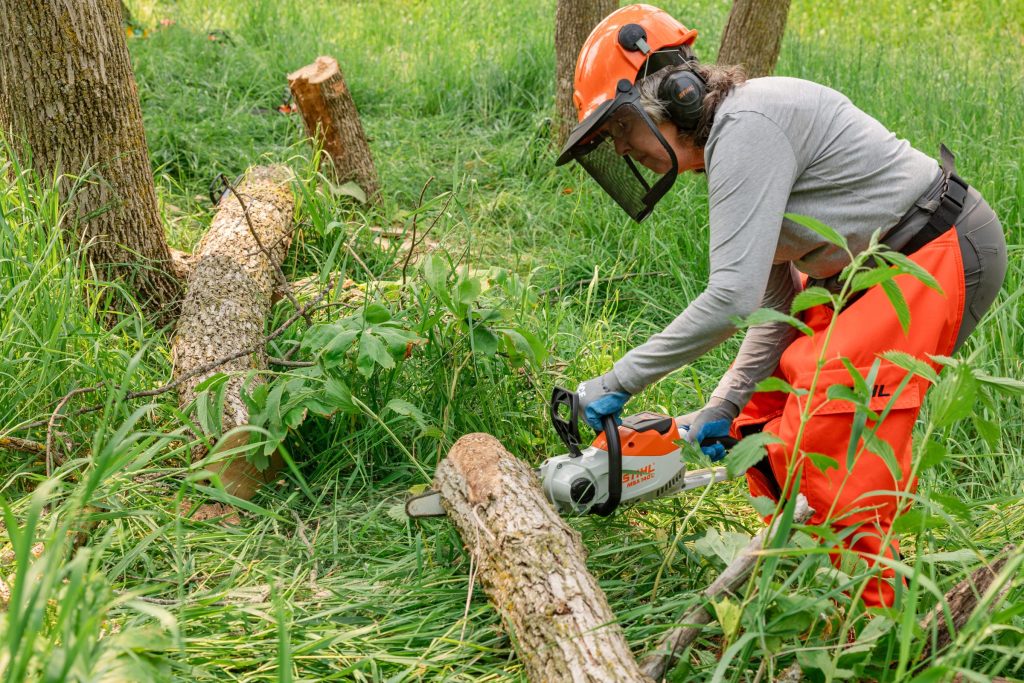For many woodland enthusiasts, a passion for the outdoors is rooted in formative experiences—family camping trips, weekends at the cabin “up north,” a neighbor who introduced hunting, or simply time spent exploring outside. Ideally, these experiences are expanded for future generations and passed down. However, what happens when some access is kept apart or not offered equally? Perhaps the entire family gathered for a hunting weekend, but only some kids went out to hunt. Or maybe the annual wood splitting at grandma’s house involved only a few family members operating the chainsaw?

This innocent pattern can repeat year after year—not from bad intent, but due to assumptions about roles, safety, and who is expected to handle certain tools. Many women share stories of growing up around chainsaws, watching family members split firewood or clear trails, but never being invited to participate. These missed opportunities often stem from unspoken norms, not a lack of interest or ability. As a result, women landowners may go years without using a chainsaw on their property, feeling less confident than male landowners who were taught at a young age.
This story is a familiar one among participants in our Women’s Chainsaw Safety Classes. By offering these classes, UW–Madison Extension Forestry Natural Resource Educators not only address gaps in access and confidence but also support the broader goals of natural resource education and stewardship—empowering all people to actively manage their woodlands. Our Women’s Chainsaw Safety Classes are open to all and are designed to reduce gaps in access and empower everyone to be able to make woodland management decisions. The class works to incorporate a supportive learning environment to help build confidence, develop practical skills, and ultimately help participants – including women – feel empowered to manage their own lands. These classes not only address gaps in experience but also advance the broader goals of woodland management across Wisconsin.
Each of these classes is designed to provide foundational knowledge and hands-on experience for participants. Much of class is focused on essential safety procedures and operating techniques—such as PPE, hazard awareness, and body mechanics—coupled with practical skills like saw maintenance, starting techniques, and cutting firewood and downed trees. After a couple days of technical and empowering practice, participants learn about compression and tension and a few will fell their first tree! Through guided practice, people of all experience levels can learn at their own pace, ask open questions, and leave feeling capable about using a chainsaw effectively on their land.

The structure of class emphasizes confidence building through guided practice, in hopes that participants take these skills home. We not only hope that women feel safe using chainsaws but that everyone feels empowered to apply these skills in a real woodland setting—clearing trails, removing invasives, harvesting firewood, and more! Post-class surveys show that this approach is working: 100 percent of participants report feeling “much more confident” using a chainsaw, and over 90 percent described themselves as “very empowered” to use a chainsaw for their own woodland needs.
As one participant shared, “Anyone interested in having a greater sense of understanding how to use and care for their chainsaw should take this class. It’s a male-dominated skill, and there is no reason women can’t get out there and do this work as well.” Another participant said on reflection, “I went from knowing absolutely nothing about chainsaws to felling a tree after 2 days. I now feel confident to use one on small projects on my own.” These stories highlight the transformative impacts of the class through skill development and a shift in perspective of who “belongs” doing woodland management work.
Looking ahead, the Forestry program hopes to continue offering Women’s Chainsaw Safety Classes and reach even more landowners around Wisconsin. The demand for these classes—and the impact stories shared by participants—make it clear that the work is needed and meaningful. As these classes grow, we hope to reach more people and explore opportunities for past participants to return for advanced sessions to brush up on skills, deepen their knowledge, and build community! Creating a culture of empowerment and land stewardship makes these classes exciting and something we look forward to continuing at UW–Madison Extension Forestry. When more people feel equipped to care for their property, the woodlands of Wisconsin benefit.




